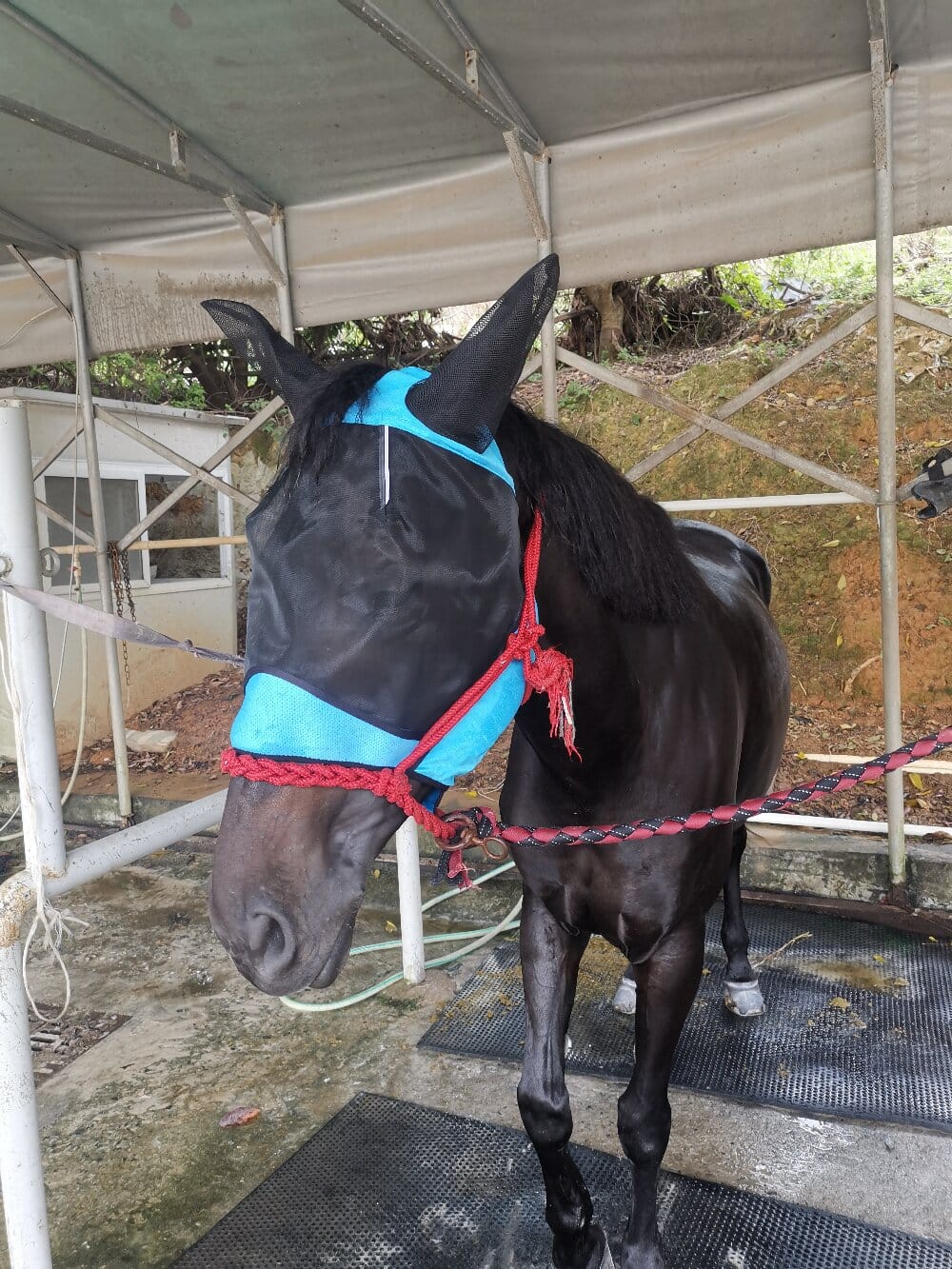A horse fly mask is a crucial piece of protective gear designed to shield horses from irritating and potentially harmful insects. Flies, mosquitoes, and other pests can cause discomfort, stress, and even infections in horses, making these masks an indispensable tool for responsible horse owners. Beyond just keeping bugs at bay, a well-fitted fly mask can also protect a horse’s eyes from UV rays, dust, and debris. Whether for pasture turnout or riding, understanding the benefits and features of these masks ensures better care for equine companions.
Key Features of an Effective Horse Fly Mask
Not all fly masks are created equal. A high-quality horse fly mask should offer the following features:
- Breathable Fabric: Mesh materials allow airflow while blocking pests.
- UV Protection: Some masks include coatings to shield eyes from harmful sun rays.
- Secure Fit: Adjustable straps prevent slipping without causing chafing.
- Durability: Reinforced stitching ensures longevity, even in rugged conditions.
- Full or Partial Coverage: Options range from eye-only masks to designs covering ears and muzzle.
Choosing the right mask depends on the horse’s environment and specific needs. For example, horses in sunny regions benefit from UV-blocking materials, while those in bug-heavy areas may need extended coverage.
How to Properly Fit a Horse Fly Mask
A poorly fitted mask can cause discomfort or fail to provide adequate protection. Follow these steps for a proper fit:
- Measure the horse’s head from the base of the ear, across the forehead, to the other ear.
- Ensure the mask sits snugly but doesn’t press into the skin or obstruct vision.
- Check that straps lie flat and don’t twist, as friction can lead to rubs.
- Test the mask’s stability by observing the horse’s movement—excessive shifting indicates a need for adjustments.
Regularly inspect the mask for wear and tear, as damaged straps or holes can compromise effectiveness.
Benefits of Using a Fly Mask for Horses
Beyond pest control, a horse fly mask offers several advantages:
- Reduced Stress: Constant insect harassment can agitate horses, affecting their behavior and health.
- Prevention of Eye Infections: Flies can transmit bacteria, leading to conditions like conjunctivitis.
- Protection from Environmental Hazards: Dust, wind, and pollen are minimized, especially for sensitive-eyed horses.
- Enhanced Comfort During Turnout: Horses can graze and relax without constant swishing or stomping.
Investing in a quality mask promotes overall well-being, particularly during peak fly season.
Choosing the Right Horse Fly Mask for Different Needs
Selecting the best fly mask depends on the horse’s lifestyle and specific challenges:
- Pasture Use: Full-face masks with ear covers provide maximum protection.
- Riding or Training: Lightweight, streamlined designs prevent interference with tack.
- Photosensitive Horses: UV-blocking masks are essential for those prone to sunburn or eye issues.
- Cold Weather: Some masks offer insulation while still deterring pests.
Consulting a veterinarian or equine specialist can help tailor the choice to individual needs.
Maintenance and Care Tips for Longevity
To extend the life of a horse fly mask, proper care is essential:
- Hand-wash or machine-wash gently using mild detergent, avoiding harsh chemicals.
- Air-dry the mask to prevent shrinkage or fabric damage.
- Store in a clean, dry place when not in use to avoid mold or tears.
- Regularly check for signs of wear, such as frayed edges or loose straps.
Routine maintenance ensures the mask remains effective and comfortable for the horse.
Conclusion: A Small Investment for Big Benefits
A horse fly mask is more than just a seasonal accessory—it’s a vital tool for maintaining equine health and comfort. By selecting the right design, ensuring a proper fit, and practicing regular upkeep, horse owners can significantly reduce stress and health risks for their animals. Whether for daily turnout or specialized needs, these masks offer a simple yet impactful solution to common equine challenges.

